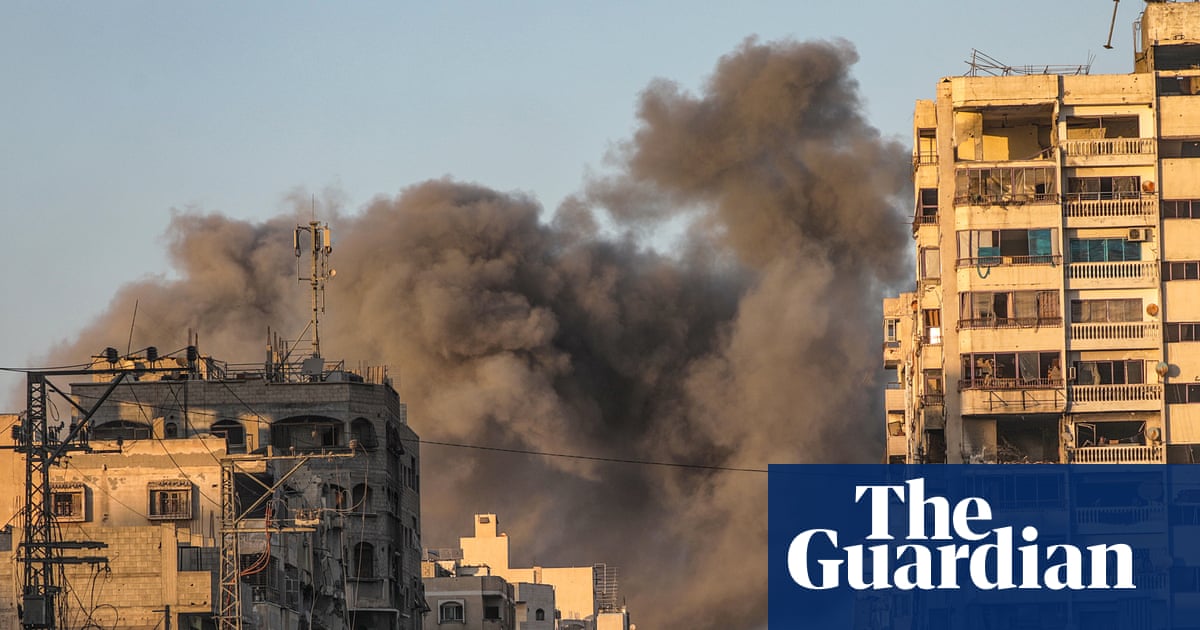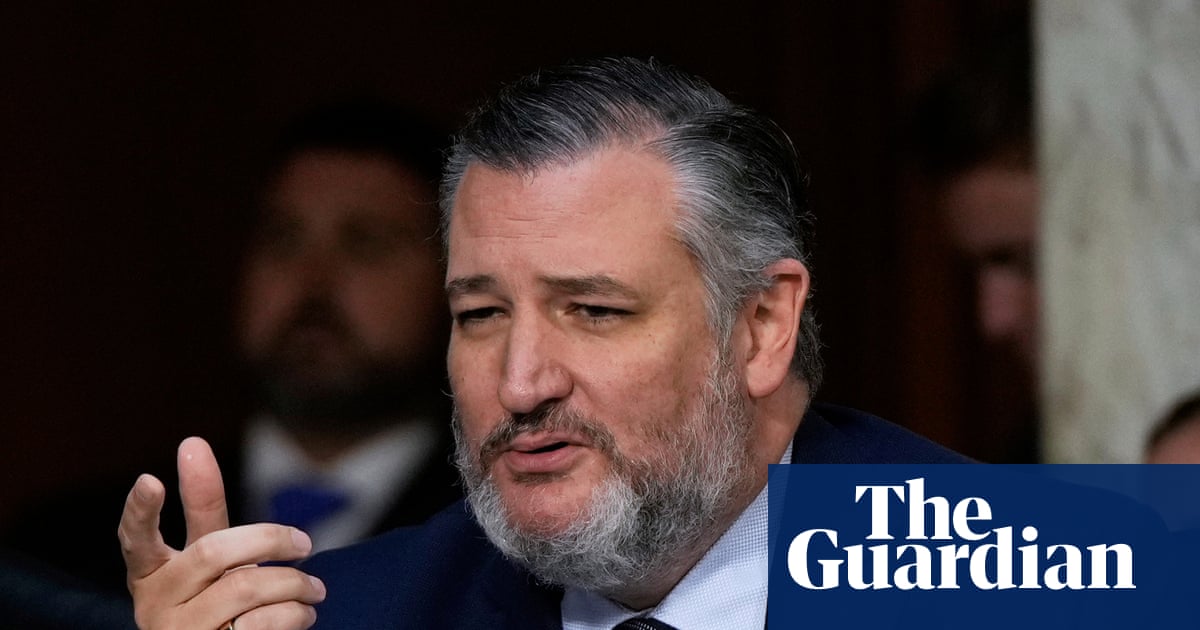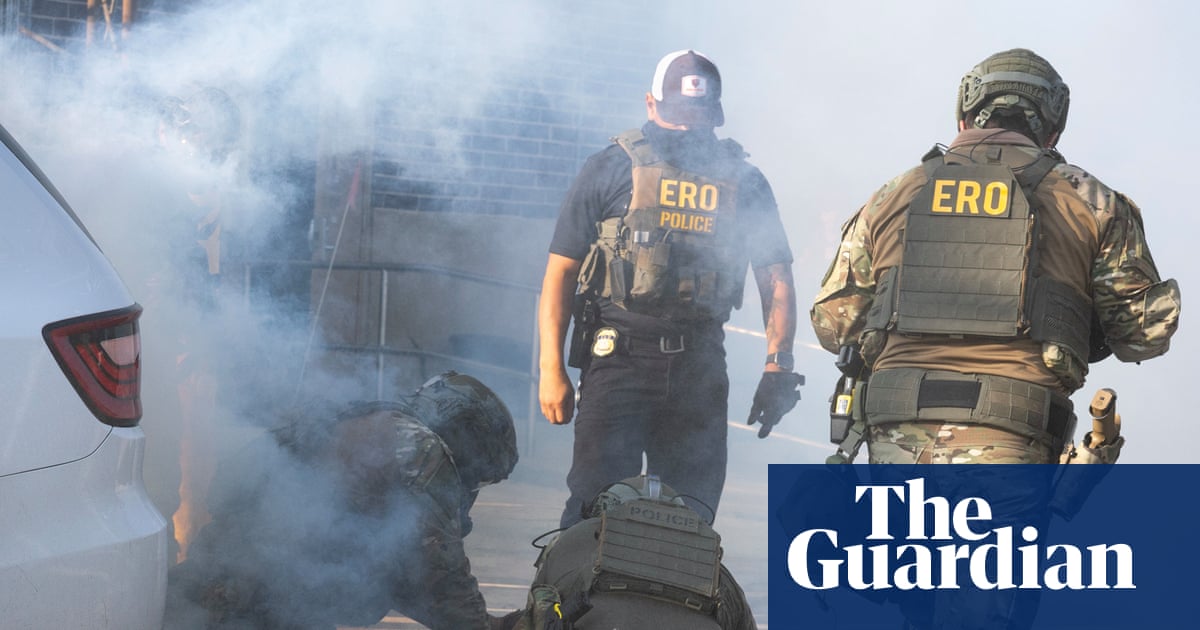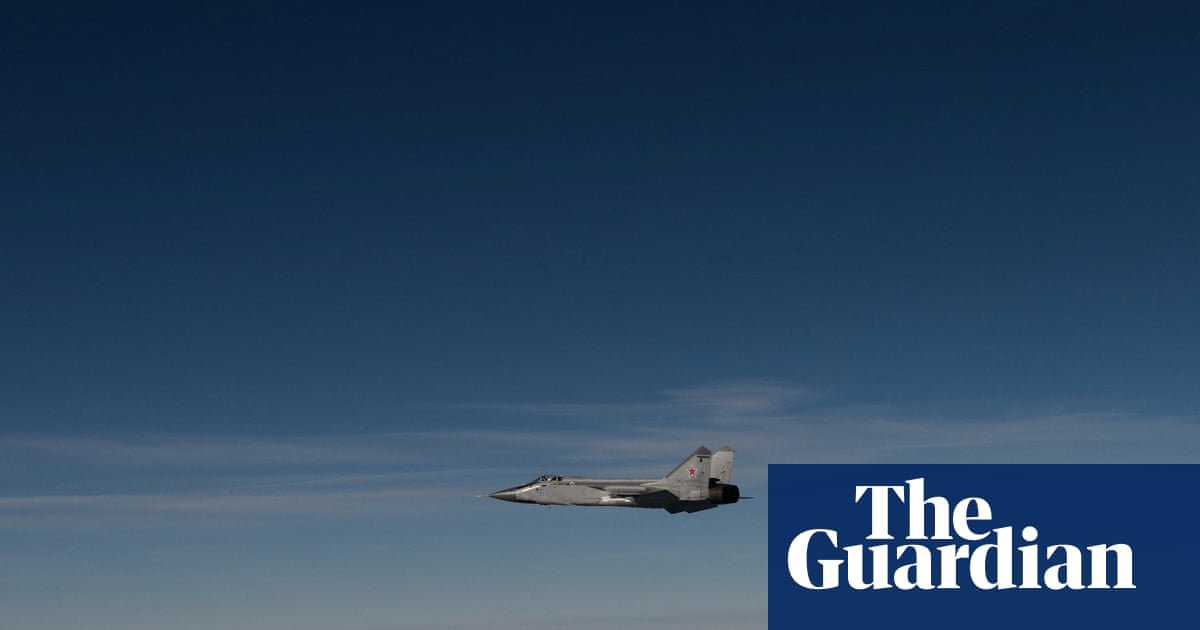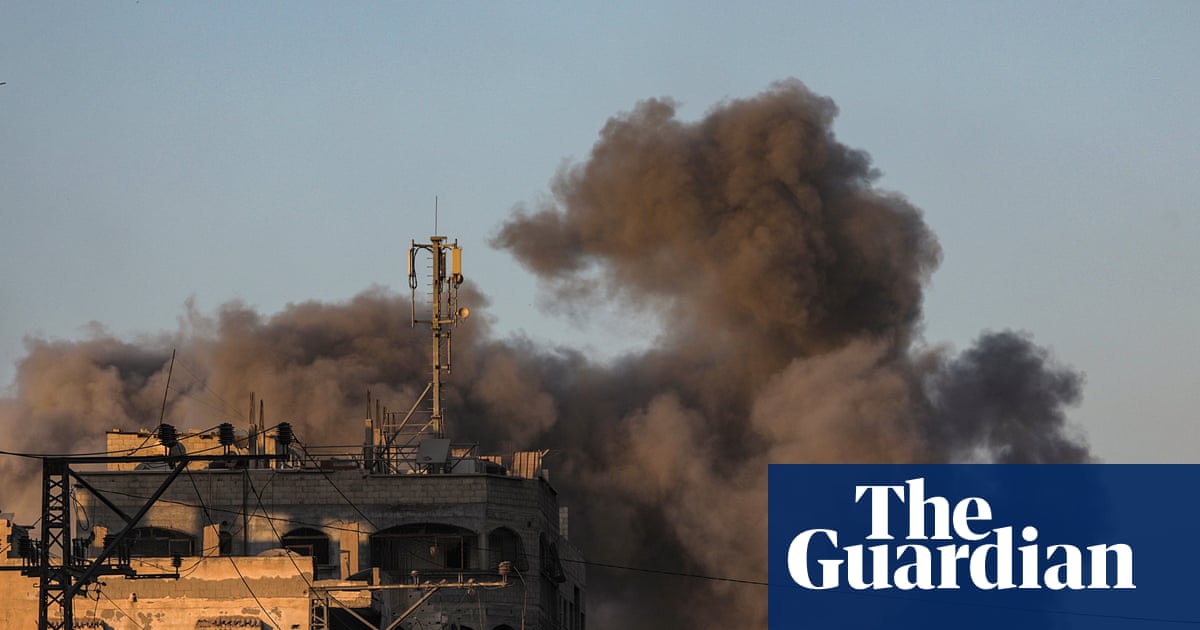Donald Trump has reacted furiously after an Israel-Iran ceasefire he had brokered and taken credit for was violated within a few hours, ordering Israel to turn its warplanes around midair and abort their planned bombing sorties, which he warned would be a “major violation”.
Israel claimed Iran had been the first to break the truce, saying it had shot down two ballistic missiles heading for northern Israel at about 10.30am, about two and a half hours after the ceasefire was announced.
Nevertheless, on waking in Washington to the news that his truce had been broken so soon, Trump reserved his greatest rancour for Israel, for the scale of its planned retaliation, but also for the amount of bombs Israeli planes had dropped between agreeing the ceasefire on Monday night and it coming into force at 5am GMT on Tuesday.
“Israel, as soon as we made the deal, they came out and they dropped a load of bombs, the likes of which I’ve never seen before, the biggest load that we’ve seen,” he said, in the strongest-worded public rebuke of Israel of any US president in history. “We basically have two countries that have been fighting so long and so hard that they don’t know what the fuck they’re doing,” Trump said.
On his own private online platform, Truth Social, he issued a blunt instruction, writing: “ISRAEL. DO NOT DROP THOSE BOMBS. IF YOU DO IT IS A MAJOR VIOLATION. BRING YOUR PILOTS HOME, NOW!”
After a conversation with Israel’s prime minister, Benjamin Netanyahu, he returned to the platform to announce: “ISRAEL is not going to attack Iran. All planes will turn around and head home, while doing a friendly ‘Plane Wave’ to Iran. Nobody will be hurt, the Ceasefire is in effect!”
Minutes later, however, explosions were reported by Iranian media around Tehran and in the north of the country.
The US website Axios reported that Netanyahu had told Trump that he could not cancel the strike entirely, and that ultimately “it was decided to significantly scale back the strike, cancel the attack on a large number of targets and strike only one target”. Haaretz reported that the single target was an Iranian radar installation.
Iran denied having broken the truce or launched missiles that Israel claimed to have intercepted mid-morning on Tuesday, but Israel’s defence minister, Israel Katz, said he had ordered immediate retaliation on Tehran.
Trump had used social media to announce the ceasefire just after 5am GMT on Tuesday, asking the warring parties not to violate it. Both sides carried out an intense exchange of fire before signalling their acceptance, but hours after the declaration it remained unclear if the truce would stick.
The all clear was later sounded in the north of Israel but the country’s hardline finance minister, Bezalel Smotrich, posted a message on the social media platform X vowing a response, warning: “Tehran will tremble.”
Iranian state media suggested the ceasefire had been “imposed on the enemy” after “four waves of attacks on Israeli-occupied territories”. The Israeli authorities confirmed Iran had fired 20 missiles, and that five Israelis had been killed and more than 22 wounded in the southern city of Beersheba.
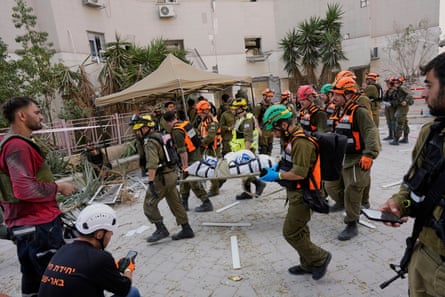
Ninety minutes after Trump’s announcement, Israel – which began the war with a surprise attack on 13 June – also acknowledged the truce and claimed victory.
In the hours before the declaration of a ceasefire, Israel carried out some of its most intense airstrikes on Tehran yet, residents said.
The Tasnim News Agency said nine Iranians had been killed in the north of the country, while Israel claimed to have struck missile launchers in western Iran and struck dozens of targets in Tehran in the early hours of Tuesday morning. The prime minister’s office claimed to have killed hundreds of militants in the Basij, a volunteer force used to suppress internal dissent, and targeted an Iranian nuclear scientist, bringing the toll of assassinations of Iranian scientists to at least 15.
Iranian state media named the scientist killed overnight as Mohammad Reza Seddighi Saber, saying he had been targeted at his parents’ residence in Astaneh-ye Ashrafiyeh in northern Iran. His 17-year-old son was reported to have been killed in a strike on the family home in Tehran several days ago, state television said.
An Iranian social media user in Tehran wrote that the Israeli strikes on the capital city were “intense” in the run-up to the announced ceasefire. “The bombardment tonight in Tehran was extremely intense. For a full hour the explosions wouldn’t stop. We are a completely defenseless people,” the user wrote.
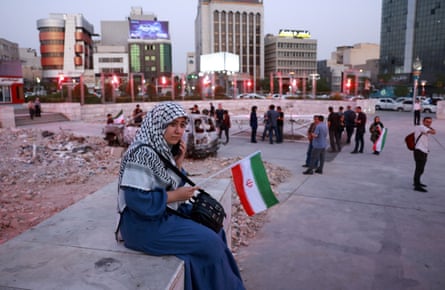
After the Israeli government officially accepted the ceasefire, the opposition leader, Yair Lapid, said it was also time to end Israel’s war in Gaza. “It’s time to finish it there too. Bring back the hostages, end the war. Israel needs to start rebuilding,” Lapid said on X. An estimated 56,000 Palestinians have been killed in Gaza over 20 months of Israeli bombardment.
The ceasefire was announced after an Iranian missile launch against a US base in Qatar, in reprisal for American participation in strikes on Iranian nuclear facilities on Sunday. Iran said it had given advance warning of the missiles to Qatar and there were no reported injuries, suggesting its response was carefully coordinated to allow Tehran and Washington an off-ramp.
Trump advisers privately said they believed Iran would accept the US president’s olive branch in order to avoid continued strikes by Israel, and because they had inflicted symbolic retaliation.
The ceasefire announcement also appeared to be an effort to reframe the metrics for success for the US operation, after it was unclear whether the deeply buried Fordow nuclear site had been destroyed.
In a post on social media, Trump said the Iranian sites had been “totally destroyed”. But the UN’s nuclear chief, Rafael Grossi, said: “At this time, no one, including the [International Atomic Energy Agency], is in a position to assess the underground damage at Fordow.”
Trump advisers tried to suggest it did not matter if Fordow was destroyed because Iran had been forced to the negotiating table – even though that would mark a departure from what Trump said he was aiming for over the weekend.
Still, the actual damage to the nuclear facilities remains an important question in advance of possible talks between the US and Iran – expected to be led by Trump’s special envoy Steve Witkoff – as it would affect Witkoff’s negotiating leverage.
Other senior administration officials claimed victory, including the vice-president, JD Vance, who claimed Iran was “incapable of building a nuclear weapon with the equipment they have because we destroyed it”.
The US attack followed a wave of missile strikes between Israel and Iran, with Israel bombing the notorious Evin prison, and took place after Trump raised the prospect of regime change in Tehran. But as of Monday evening, senior US officials had suggested the Iranian attack on Qatar was designed to avoid a further escalation that could lead to an all-out war which could imperil the Iranian regime.

 2 months ago
75
2 months ago
75
